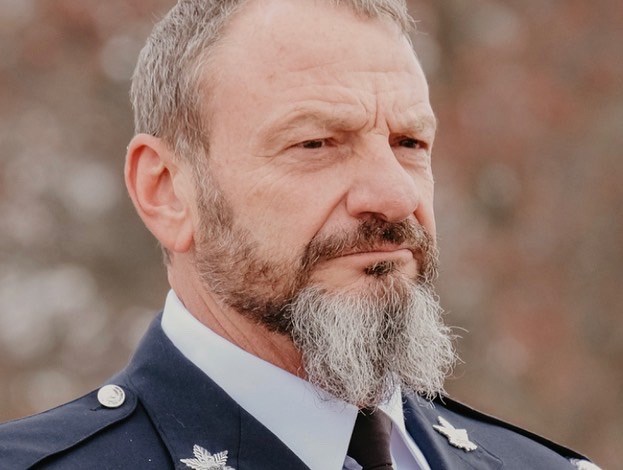THUNDER BAY — Constable Jeff Elvish got the support that he believes saved his life, just in the nick of time.
It was 2018, and the Thunder Bay police officer was in a mental health crisis, suffering from what was diagnosed later as post-traumatic stress disorder.
At virtually the last minute, Elvish reached out to a friend and begged for help.
"She talked me down. She gave me the opportunity to go forward, learn about this monster," he writes in a submission posted on the website of the Police Association of Ontario.
It's just one of numerous accounts there that detail the mental health and wellness experiences of sworn and civilian police personnel across the province.
Today is Bell Let's Talk Day, an initiative to raise awareness and combat stigma surrounding mental illness in Canada.
Elvish told TBNewswatch he was compelled to share his own story because PTSD is a serious problem.
"Not just in policing, but in emergency services in general, and the military. It's something that a lot of people suffer with and don't really realize what's going on. Once I was diagnosed with it and started learning more about it, I felt it was important to come forward to let people know that there is help... and that we remove the stigma."
Elvish eventually ended up receiving treatment at a specialized facility in southern Ontario, where he spent two months.
The 29-year-veteran officer said what he learned there was instrumental in finding his way forward.
"There were police officers, military people, from corrections, and there were lots of people who were in totally unrelated jobs. There were students too. It was just coming to the realization that so many people struggle and suffer with this. It was a great learning experience just to be able to talk to other people."
After treatment, Elvish returned to active service where he puts his new coping tools to good use.
"It's changed my approach to dealing with people who are struggling when we go to deal with them. And since I've been diagnosed and undergoing treatment and continue, I'm very open to say people 'I know where you're coming from. I've been in the same place.' People kind of take a step back when they find out that I've been there too."
'Suck it up and move on' is not the right approach, Elvish says
Elvish is currently a member of IMPACT, the Integrated Mobile Police Assessment Crisis Team, a joint program of the Thunder Bay Police Service and the Canadian Mental Health Association.
Although he was also recently selected to join the TBPS internal peer support team, he was already reaching out to colleagues to offer advice.
"I talk to the young guys all the time, and I tell them, yes, I spent almost two weeks in adult mental health...and I'm back on the road doing the job I love doing because I asked for help."
Elvish said he tells newer officers about things to look out for that he never thought of when he began his career.
"Back then the culture was different. The line was 'Suck it up and move on. These things happen.' "
But today, he said, emergency responders need to comprehend how their experiences at work can affect their mental health, whether it be a single traumatic incident or a series of events over a longer period.
"A lot of the things that we do see are horrible. I try to explain to the young guys that we're not some type of robot that can just process these things and move on...if you're having trouble doing it on your own, talk to people."
In his submission to the Ontario Police Association, Elvish reminded his colleagues "When we go to the Ontario Police College, we don't get a chip implanted that takes away our feelings and emotions. We will see and experience the worst of the worst. The things that nobody is ever supposed to see."
Compounding this, he said, are "the stresses that we experience from the small percentage of the public who don't support us, the pressures from administration, higher and higher call volumes. It's a recipe for disaster."
But despite the challenges of policing, he still recommends it as "an incredible career to help people, above all else."
Elvish cited some of the simple rewards that help him through his day.
"There's little things that make this an incredible job. Driving down the street and seeing a couple of kids outside that wave at you, and you flick the lights at them. It just makes their day. Or people pulling up beside you at a traffic light and rolling down the window to say 'Thank you for everything you do.' "
These are the experiences he said he wants his fellow officers to remember, and to "let that push the negative stuff away."
NOTE: Individuals experiencing a mental health crisis may contact the Canadian Mental Health Association's 24/7 Thunder Bay crisis line at (807)346-8282
